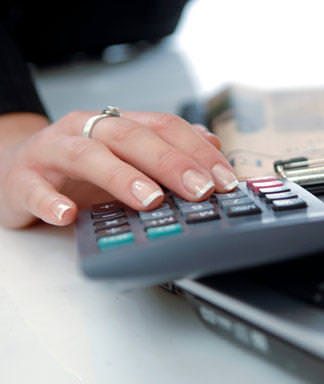Some people do not want to think much about taking responsibility for their personal finances, so they just set their bills aside until they have time to pay them. This practice can cause you to miss a payment deadline, and that can do some damage to your credit score. Use the basic guidelines in this article to make sure your financial future is secure.
Personal Budget – Take Control of Your Personal Finances
 The very best way to control where your money is spent is to make a budget. This budget needs to itemize all the income you know you will have each month, and also every scheduled expense. Separate your expenses into fixed expenses, such as housing costs, payments on your automobile loan, and a minimum amount for food. You should also allow for incidental expenses such as entertainment, travel and clothing.
The very best way to control where your money is spent is to make a budget. This budget needs to itemize all the income you know you will have each month, and also every scheduled expense. Separate your expenses into fixed expenses, such as housing costs, payments on your automobile loan, and a minimum amount for food. You should also allow for incidental expenses such as entertainment, travel and clothing.
Many people do not like to use a credit card because they are so easy to misuse. Having one or two credit cards is not a bad thing, and you can use them to build a good credit score if you always make your payments on time. Plan carefully before you purchase on credit so you know how soon you will be able to pay off your balance. Do not close out a credit card if it has a zero balance, because your line of credit is considered a plus by credit reporting agencies. Once you have used a credit card wisely for a couple years, you should start getting offers of zero percent interest for a limited amount of time. You may be tempted to use these cards more than necessary, but use the credit only if you know you can pay the balance before higher interests kicks in.
Savings accounts usually pay accumulating interest on the balance of the account, even though it is a very small amount. Saving your money in a money market account may increase the amount of interest a little more than a regular savings account. There are savings account that pay more interest, but they typically require you to keep your money in them for at least six months.
If you already have debt that is weighing you down, begin to pay as much as you can each month. Start with the smallest balance, and go to the next one once that is paid. Of course, do not neglect to make at least the minimum payment on each account, and do not do anything to increase the balance of your total debt.
Get Your Personal Finances Under Control
Until you have your personal finances totally under control, it is best to delay any type of investing. When you no longer have any outstanding debts, invest a small amount in a safe mutual fund or other low risk investment.
Most banks have similar options, so choose one that is convenient to your location. It is also very convenient for you to have access to your accounts online, so make sure your bank offers that service.
If you are a young person just entering the workforce, your secure financial future depends on you taking control of your personal finances. Use the information in this article to make sure you safeguard your finances and credit history.
